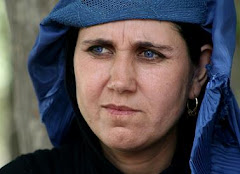
In Afghanistan today one in five children die before reaching their fifth birthday - mostly from easily preventable diseases like diarrhoea and pneumonia – five million children are still out of school, over three million of whom are girls, and only six percent of children are registered at birth, leaving the great majority without a legal identity, protected and cared for by law.
”We are acutely aware of the difficulties facing the Government of Afghanistan in seeking to fulfill the rights of children in the country, especially in light of the ongoing conflict”, said UNICEF Representative Peter Crowley. “It is the responsibility of the Government of Afghanistan to ensure the existence of a complete legal framework to fully protect all children. UNICEF will continue to assist in that process”.
UNICEF welcomes the several important pieces of legislation and policies that have been developed and adopted since 2002; however inconsistencies remain between national legislation and the provisions of the Convention, as do challenges in ensuring effective implementation. Furthermore, while the Constitution of Afghanistan adopted in 2004 provides for progressive guarantees of international human rights standards, there is little direct reference to the specific rights of children.
It is for these reasons that UNICEF recommends to the Government that it prepare a comprehensive Child Act to encompass the full array of children's rights, backed by the necessary resources for implementation, as well as means to monitor and provide appropriate forms of redress. The Act would supersede all preceding legislation not in line with the Convention, and accord to the Convention a legal status that could be directly invoked within the domestic legal system. Once in place the successful implementation of a Child Act will require the fullest possible ownership and commitment from the senior-most levels of the Government of Afghanistan.
It is clear that legislative and policy frameworks alone will not automatically lead to the effective protection of child rights in Afghanistan. Awareness-raising on children’s rights among the general population will be vital, as will specific training for all relevant professionals with a duty of care towards children, including all law enforcement officials, national security forces, and education and health personnel. Furthermore, the specific integration of child and human rights education into the school curriculum is needed so that all children in Afghanistan understand the rights to which they themselves are entitled.
Finally, despite the efforts already made to ensure the rights of all children, both girls and boys, from all areas of Afghanistan, there continue to be clear disparities among the child population of the country.
Poverty, disabilities, the impact of conflict, gender inequalities and the rural-urban divide all clearly affect access, or the failure of access, to basic education, health and other services. Targeted measures will therefore be required to address all such disparities. Equity considerations must be foremost in all planning and budgeting decisions that impact the welfare of children whoever they are and wherever they may live in the country.
UNICEF



.jpg)



